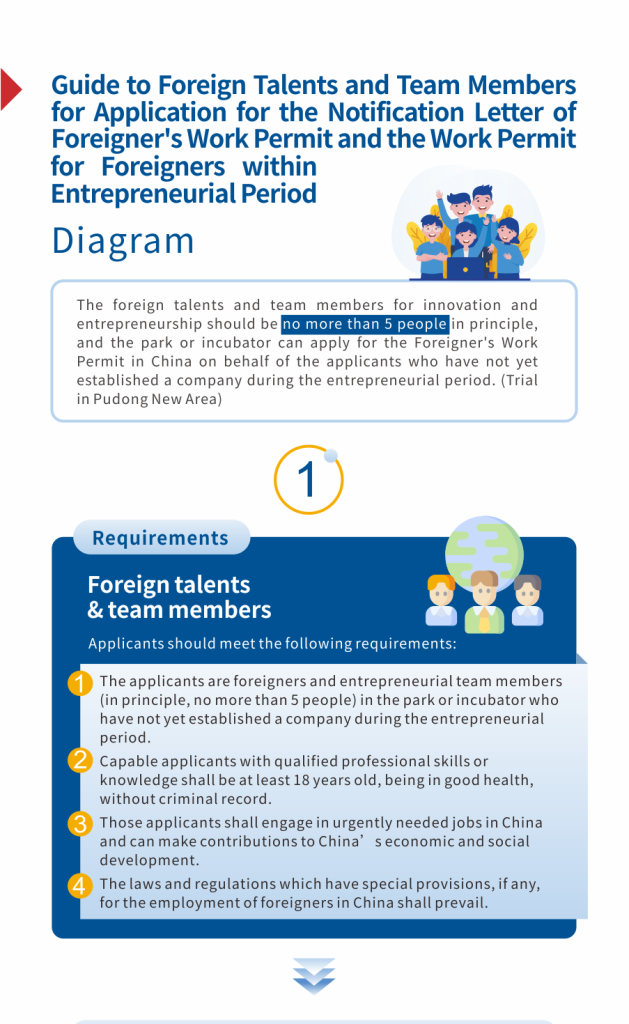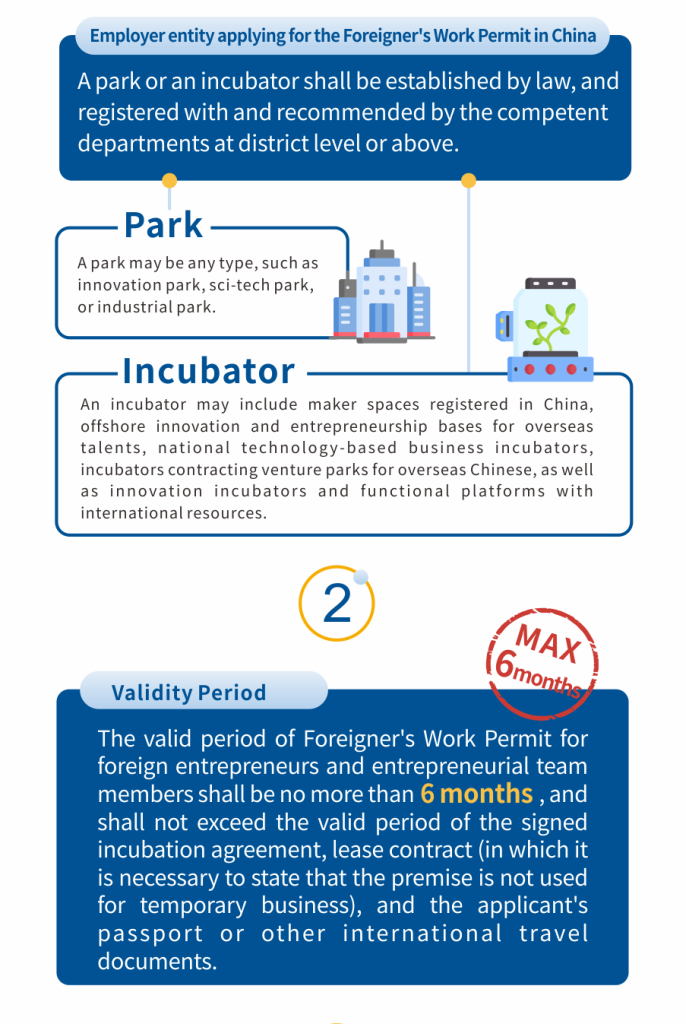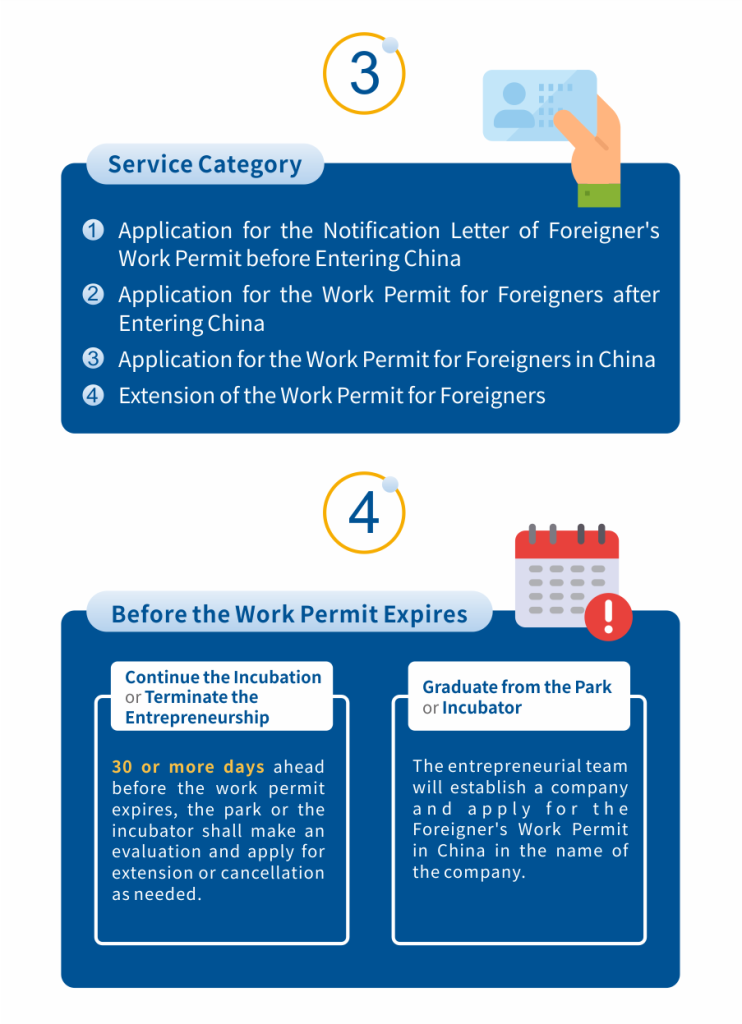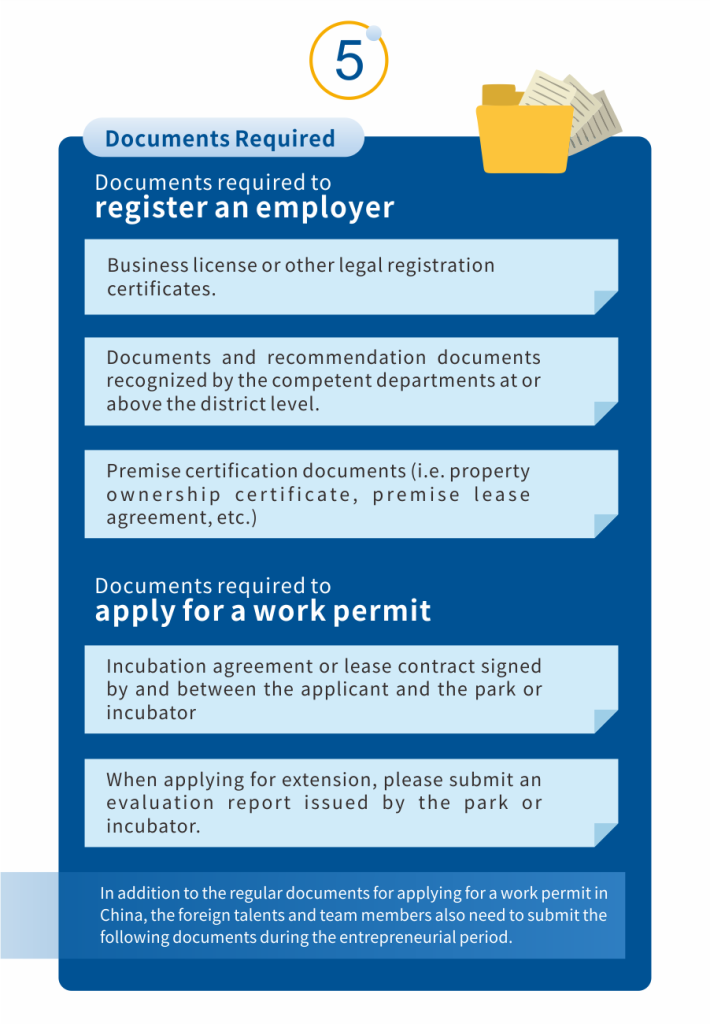Guide to Foreign Talents and Team Members for Application for the Notification Letter of Foreigner’s Work Permit and the Work Permit for Foreigners within Entrepreneurial Period (Trial)




The Lingang Special Area of China (Shanghai) Free Trade Zone has recently launched policies aimed at promoting the legal service industry. These policies seek to attract legal service institutions and build up a legalized business environment in the special area.
Here are some of the policy highlights.
Subsidies
The Lingang Special Area welcomes well-known international arbitration, commercial mediation, and dispute resolution agencies. They will receive a grant of 2 million yuan (US$277,000) to set up businesses.
Overseas law firms are being invited to set up representative offices in the special area.
Legal rating agencies have included well-known law firms from other countries as well as those from Hong Kong and Macau in their rankings. They will each receive funding of up to 1.5 million yuan to set up offices in the area.
Those not on the list but intending to open an office in Lingang will receive a subsidy of up to 1 million yuan.
Domestic law firms are also being encouraged to engage with law firms from other countries to set up entities in the Lingang Special Area. Local firms will receive subsidies ranging from 1 million yuan to 2 million yuan.
Visa
Foreign legal professionals working in the Lingang Special Area will have access to 24-hour port visa services and will be granted a five-year work and residency permit.
Chinese nationals who have obtained foreign nationality will be eligible for a long-term residency visa for foreign talent (Category B) with a maximum validity period of 10 years.
Announcement on Extending IIT-related Policies for Expat Individuals
No. 29 Announcement in 2023 by the Ministry of Finance and State Administration of TaxationIn order to further reduce the burden of taxpayers, the announcement of the individual income tax policy on allowances and subsidies for expatriate individuals is hereby released:
I.The expatriate individuals who are residents in China may opt to claim the additional itemized individual income tax deductions or enjoy the existing preferential policies of tax exemption for allowances related to housing subsidies, language training fees, and children's education fees in accordance with the Circular of the Ministry of Finance and the State Administraiton of Taxation on Some Policy Issues on Personal Income Tax (Cai Shui Zi [1994] No.20), the Circular of the Ministry of Finance and the State Administration of Taxation on the Implementation of Individual Income Tax Exemption for Foreign Individuals with Relevant Subsidies (Guo Shui Fa [1997] No.54) and the Circular of the Ministry of Finance and the State Administration of Taxation on the Exemption of Individual Income Tax for Foreign Individuals Obtaining Housing Subsidies in Hong Kong and Macao SAR (Cai Shui [2004] No. 29). Once an option is made, it may not be changed within a tax year. II. This announcement is enforced until December 31, 2027. This announcement is made by the Ministry of Finance and State Administration of Taxation.
Date:August 18, 2023
Starting from tomorrow, travelers entering and exiting China will no longer be required to fill in the Health Declaration Form, China's Customs authority announced today.
Nevertheless, individuals showing symptoms or with confirmed infectious diseases must promptly inform customs about their health conditions. Travelers who conceal relevant information and therefore cause serious consequences will bear legal liabilities.
Starting from October 26, if you're a foreigner who has worked or run a company in Hong Kong, you can apply for a visa for two years or more to shuttle between the mainland and Hong Kong.
After obtaining this visa, you can make multiple trips between Hong Kong and the mainland. Whether you come to the mainland for business or to attend meetings, it's very convenient!
But, if you enter Hong Kong with a tourist visa or visa exemption, you cannot apply for it. You must be a long-term resident in Hong Kong and hold a Hong Kong work visa or permanent residence.

“
Please accept this recommendation for Lillian Zhou and the entire staff at J&K Investment Consulting (Shanghai) Co. , Ltd.
My Company The Charles Boggini Company from Coventry Connecticut USA engaged Lillian to assist in the set up of a trading company in Shanghai China also know as a WOFE . From the first meeting with Lillian I felt comfortable that J&K could handle all the details needed to complete the job.
The entire process was handled in a professional manner and the communication was very clear. Lillian and her staff were able to translate and explain clearly the details all the way thru the process. I was so comfortable with the WOFE setup that I continued with Lillian and J & K to mange my accounting and company details for the past two full year.
The staff is very efficient and detail oriented. I would be happy to refer them to any prospective client.
David C. Boggini
Founder & CEO, Boggini Trading (Shanghai) Co., Ltd

“
We have been cooperating with J & K in the past 6 years and we highly appreciated their visa services for our foreign employees. The number of our foreign employees is big and they work for our Shanghai head office and branches in different cities in China, to
control the employment and visa risk is not quite easy. Fortunately,we found J & K , they are our trustworthy visa consultant, their professional acknowledges and working schedule make us have no doubts and troubles when we are facing the employment and visa issues, no matter application, modification, extension and termination. We highly appreciated their efforts and hope to continue to cooperate and recommend J & K to you.
Vicky Zhou
C&B Manager, ASC Fine Wines

“
We have cooperated with J&K for many years, we deeply felt the professional services of them. When dealing with more complicated work, they always give quick feedback and provide effective solutions. J&K staff are very patient, meticulous and trustworthy. -- Lily Fang, Legal Department of WeWorkJ&K has participated in many company registration and change projects of us. For many years, they have been holding a professional and meticulous working attitude and provided us with extremely satisfactory services. J&K not only excellently completed various project tasks, but also provided us with solutions through their senior experience and knowledge to solve our problems and become an indispensable right-hand assistant in our work. Over the years, J&K and Wework have experienced growth and development together, they help their customers stay invincible in the changeable market competition. I believe that in the future, J&K will be able to serve more and better customers with unlimited future. -- Nancy Hong, Treasury Analyst of WeWork

“
What I admire most about the J & K team is their attitude towards service details. Each of them is striving for perfection. The J & K team has professional background and many years of experience, providing us with extremely satisfactory and pleasant service. Communication is the most important problem in the service, Every time J & K confirms and explains all problems in the work carefully and patiently, even the smallest details they try to ensure that there is no error. J & K not only provides us with high-quality services, but also provides many effective and feasible suggestions and guidance. J & K won the praise of our company, each of us is very willing to recommend such an excellent team to every potential customer.
Jane Hu
Centre Manager, ARCC Spaces



Leave us a message
Interested to Know More?
Please complete the form beside and we will get in touch with you soon!
Content with an asterisk (*) is required.